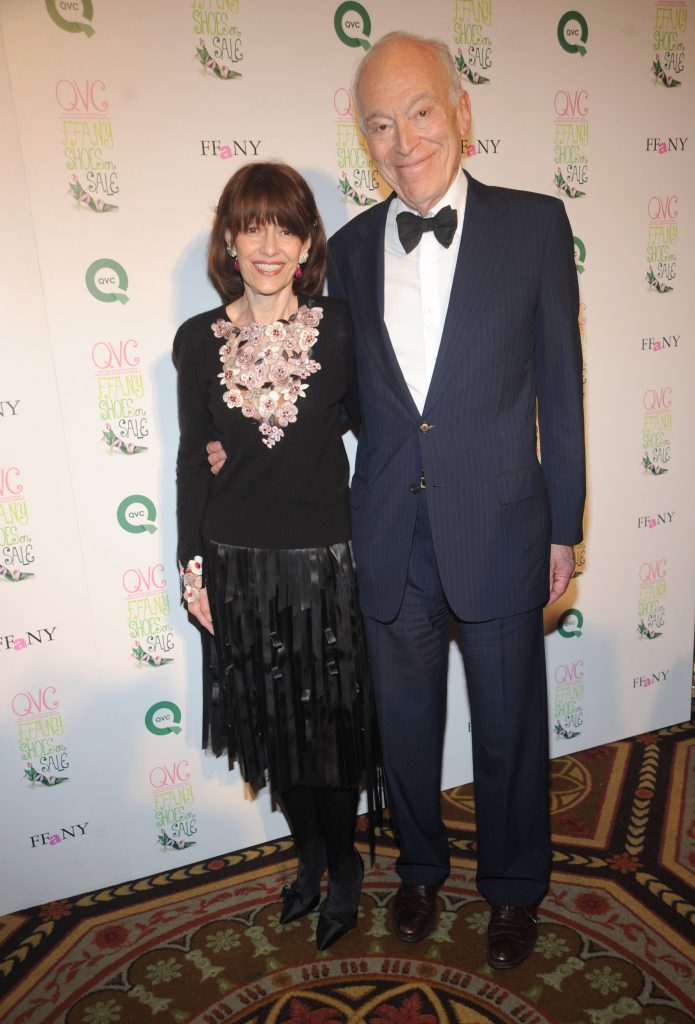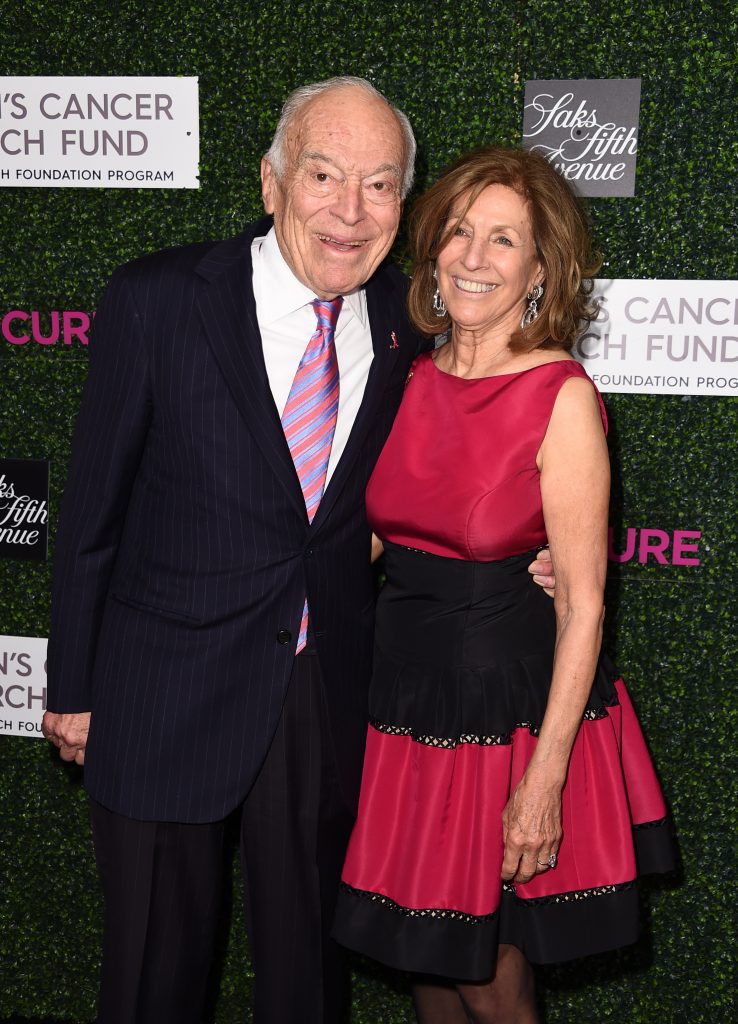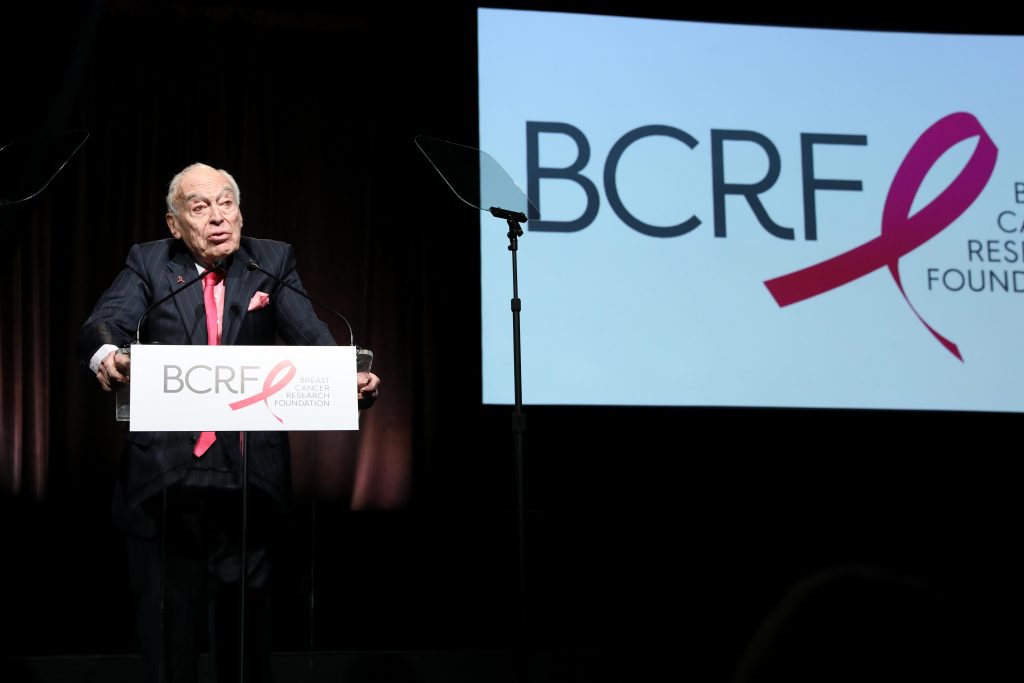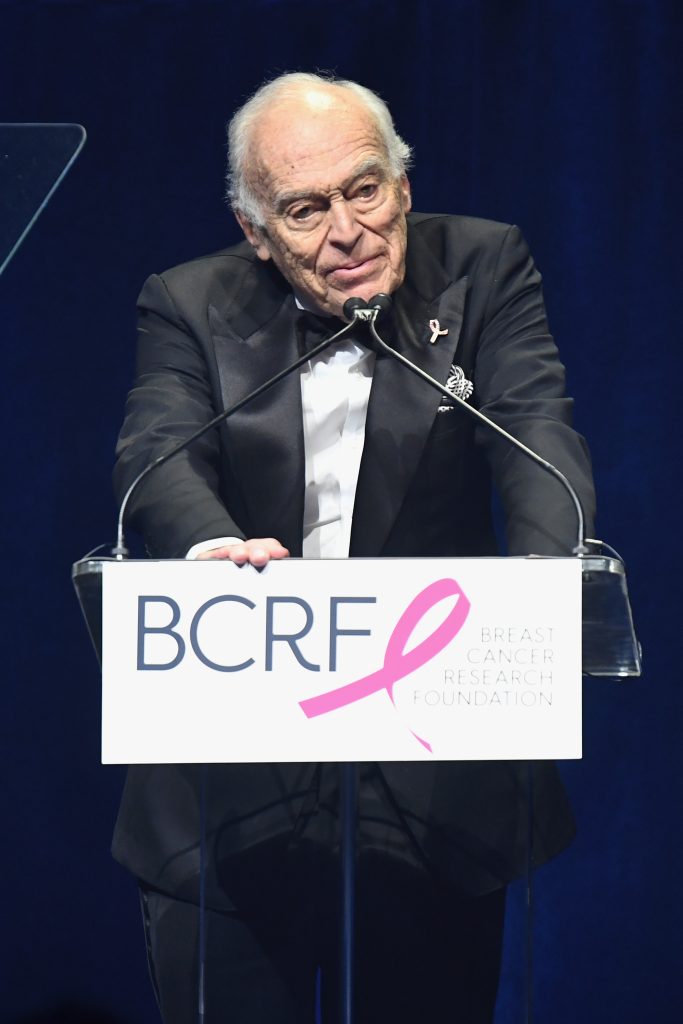A Lasting Legacy In Breast Cancer Research
- Leonard Lauder, philanthropist and Honorary Chairman of the Breast Cancer Research Foundation (BCRF), passed away at 92, leaving behind a profound legacy in breast cancer research and advocacy.
- Lauder’s late wife, Evelyn H. Lauder, founded BCRF in 1993, and the organization has had a hand in many of the breast cancer treatment advances over the years, given its standing as one of the world’s leading private funders of breast cancer research, driving scientific breakthroughs.
- Dr. Larry Norton, Senior Vice President at Memorial Sloan Kettering Cancer Center and BCRF’s founding scientific director, worked alongside Lauder and Evelyn to expand the foundation’s impact. He described Lauder as a “Force for Good” and claimed that BCRF is among the world’s largest non-governmental funder of breast cancer research.
- Historical trends show significant progress in reducing breast cancer mortality. From 1975 to 1990, the death rate hovered around 31% to 32%, but since 1990, the mortality rate has steadily declined—from 33% in 1990 to 18% in 2023, according to the National Cancer Institute.
- The National Cancer Institute also says the 5-year relative survival rate for early-stage breast cancer stands at 91%, while those with regional spread—meaning cancer has reached nearby lymph nodes—have an 87% survival rate. These statistics are a testament to improved cancer screenings, early detection, and treatment methods.
- BCRF donates millions annually to cancer researchers whose studies have the most potential to impact patients and treatments.
Lauder’s late wife, Evelyn H. Lauder, founded the Breast Cancer Research Foundation (BCRF) in 1993. Given its standing as one of the world’s leading private funders of breast cancer research, the organization has contributed to many of the disease’s treatment advances over the years, driving scientific breakthroughs. Lauder served as Honorary Chairman of BCRF.
Read More
“Right now, BCRF is the world’s largest non-governmental funder of breast cancer research, and we give out grants in the United States and worldwide to people with the best ideas,” Dr. Norton boldly told SurvivorNet at the 2025 American Society of Clinical Oncology (ASCO) annual conference in Chicago, IL.

“The term ‘force of nature’ is often overused, but in the case of Leonard Lauder, it is both appropriate and profound: a force for good, whose impact is immeasurable,” Dr. Norton said in a statement.
“When Evelyn and I sat at their kitchen table discussing a possible foundation to connect breast cancer laboratory and clinical research, Leonard overheard and said, “I’m in!” And he never wavered from that commitment, even after Evelyn’s tragic death in 2011. As we have dedicated all of our strength to fulfill Evelyn’s vision of a world without cancer, so now we must continue to be inspired by Leonard’s passion to heal the world,” Dr. Norton continued.
View this post on Instagram
Dr. Norton worked alongside Lauder to expand the foundation’s reach, securing funding for transformative research into breast cancer treatment and drug resistance. Reflecting on their shared work, Dr. Norton expressed sorrow at Lauder’s passing but great pride in the lasting impact of their efforts, stating that the foundation’s achievements will continue to benefit patients for generations to come.
The Breast Cancer Research Foundation (BCRF) has played a pivotal role in advancing research that uncovers the molecular drivers of breast cancer. These discoveries have paved the way for highly effective treatments tailored to target cancer cells based on their genetic makeup. While significant progress has led to a decline in breast cancer mortality rates, the fight is far from over—continued research is essential to further improve outcomes and enhance the lives of those affected by the disease.
Breast Cancer Treatment Advancements Continue to Offer Hope for Patients
- A New Treatment Combination Shows Promise For Hard-To-Treat Triple-Negative Breast Cancer — What New Data Means For Patients
- Advances in Metastatic Breast Cancer Treatments Over the Last Year Offer New Hope for Those Fighting
- Digital Guide: Dr. Yara Abdou Breaks Down Next-Generation Sequencing & Breast Cancer Treatment
- Do You Have HER2-Positive Metastatic Breast Cancer? Here’s A Breakdown Of Some Of Your Treatment Options
- How Does Molecular Testing Help Determine the Best Breast Cancer Treatment Option?
Breast Cancer Research Foundation’s Growing Footprint
The fight against breast cancer continues to evolve, with early detection playing a crucial role in improving survival rates. According to the National Cancer Institute (NCI), the 5-year relative survival rate for early-stage breast cancer stands at 91%, while those with regional spread—meaning cancer has reached nearby lymph nodes—have an 87% survival rate. However, for patients diagnosed with metastatic breast cancer, the 5-year survival rate drops to approximately 32%, highlighting the challenges of treating advanced cases and the need for more research.

Historical trends show significant progress in reducing breast cancer mortality. From 1975 to 1990, the death rate hovered around 31% to 32%, but since 1990, the mortality rate has steadily declined—from 33% in 1990 to 18% in 2023, the NCI says.
Despite these advances, disparities persist, as certain ethnic groups face higher risks of aggressive breast cancers, reinforcing the need for targeted research and equitable healthcare access.
The Breast Cancer Research Foundation (BCRF) continues to be a driving force in advancing breast cancer research. The medical journal Neoplasia has recognized BCRF’s wide-ranging contributions:
“The BCRF grants support outstanding clinical and genetic research that has the potential for rapid clinical application. Ongoing areas of investigation include the genetics of breast cancer, breast cancer vaccines, the effects of hormones on breast cancer, the effects of angiogenesis on tumors, and clinical trials,” the journal stated.

In 2024, BCRF made its largest investment yet—$70.3 million—to accelerate treatment breakthroughs, funding 35 projects focused on improving patients’ quality of life during and after treatment. The organization claims that since its founding in 1993, it has raised “more than a billion dollars” for breast cancer research, fueled by donations from individuals, corporations, and foundations.
The Metastatic Breast Cancer Alliance (MBC) has also benefited from BCRF’s support, receiving “more than $48 million” to advance metastatic breast cancer research. BCRF carefully selects grant recipients through a rigorous review process led by a team of breast cancer experts, ensuring that funding goes toward high-impact research efforts.
As BCRF Chief Scientific Officer Dorraya El-Ashry, PhD, emphasized:
“We must persist in advancing treatments and prevention strategies while striving to ensure equitable access to these advancements for all patients. Our funding enables some of the world’s most talented scientists to pursue bold new ideas across the entire spectrum of breast cancer that pave the way for future breakthroughs.”
With continued research and investment, the goal remains clear: to improve survival outcomes and ensure better treatment options for all breast cancer patients.
Continued Progress in Ongoing Breast Cancer Research
Over the past two decades, progress in breast cancer treatment has accelerated.
“For the last 20 years, we’re getting better and better at killing breast cancer cells. We have drugs that work,” Dr. Norton told SurvivorNet.
However, drug resistance remains a persistent challenge, particularly mutations in the estrogen receptor that render certain therapies ineffective. Norton highlighted a breakthrough in 2013 when researchers identified such a mutation, leading to the development of drugs designed to downgrade estrogen receptors, preventing them from fueling cancer growth.
Dr. Norton’s vision, strongly supported by Lauder, focuses not only on eliminating cancer cells but on controlling the disease—turning breast cancer into a manageable condition.
“What I would like to do is control it forever,” Dr. Norton explained.
He likened this approach to pneumonia treatment, noting that while patients recover from the infection, the goal with cancer is long-term management rather than absolute eradication.
WATCH: What Is Metastatic Breast Cancer?
“The ultimate goal is a perfectly long healthy life unperturbed by the disease,” Dr. Norton said, noting that some of his patients with metastatic breast cancer have lived for decades without significant trouble. He compared effective cancer management to chronic conditions like diabetes, emphasizing that even if cancer cells persist, treatment can keep them from spreading and causing harm.
Lauder’s legacy is reflected in the continued advancements in breast cancer research, driven by the scientists and medical experts he championed. His dedication to ensuring the best possible patient outcomes will remain a guiding force in the fight against breast cancer as researchers carry forward the vision he passionately supported.
Learn more about SurvivorNet's rigorous medical review process.

